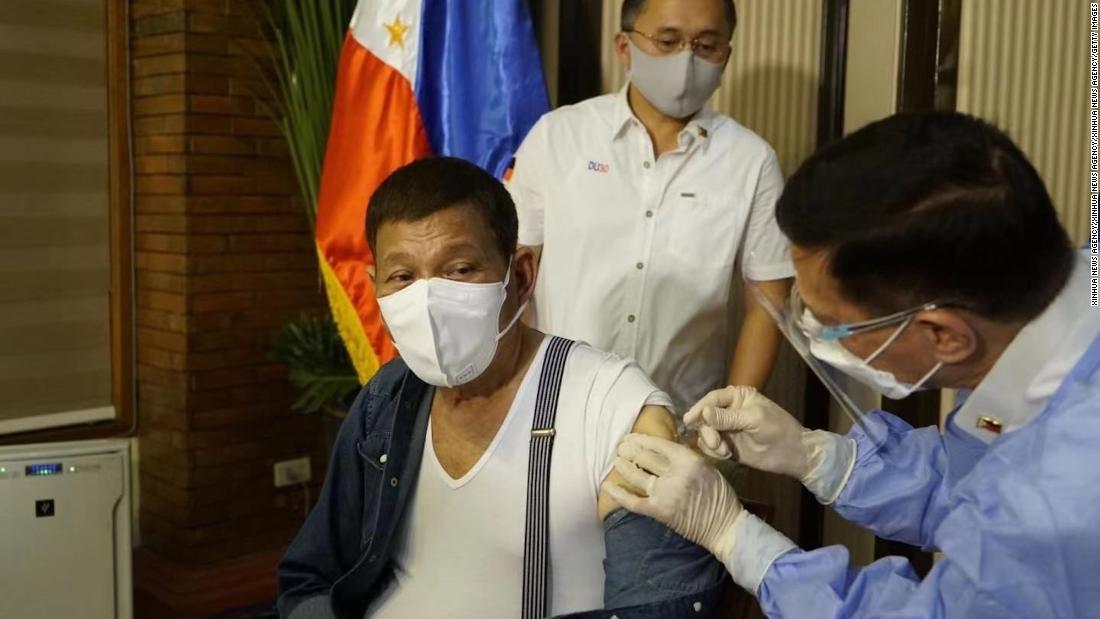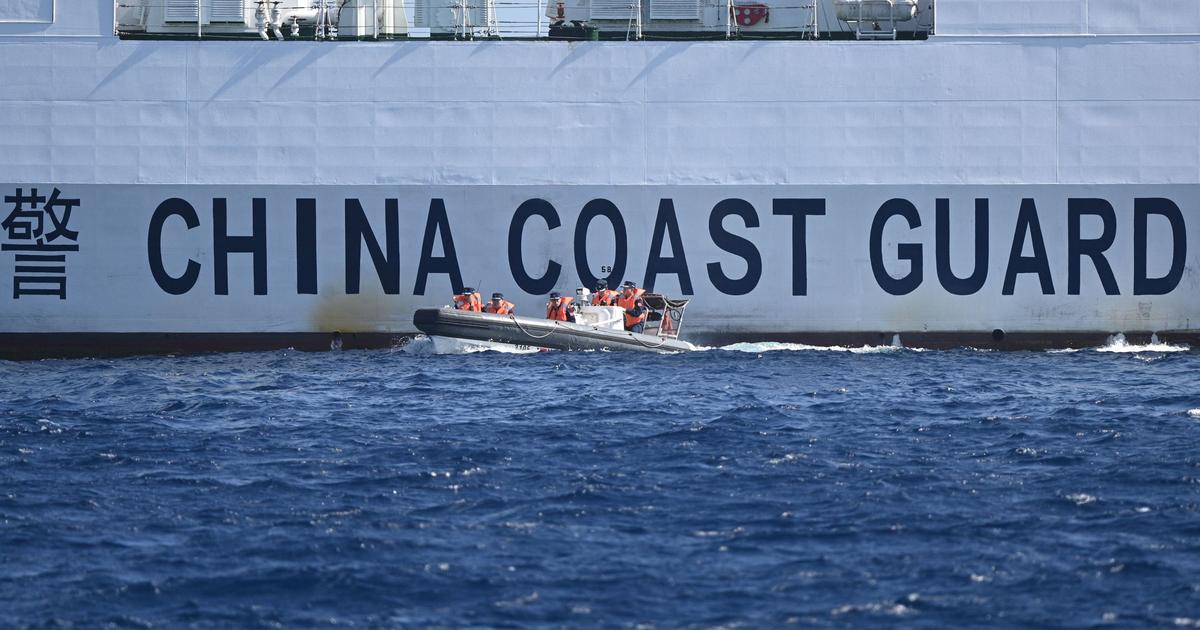Would it benefit to release patents for vaccines against covid-19?
1:59
Hong Kong (CNN) -
When Philippine President Rodrigo Duterte broadcast live a video showing him receiving a first dose of the Chinese-made Sinopharm vaccine on Monday, it was supposed to encourage reluctant Filipinos to keep going. your example and protect yourself against covid-19.
Instead, this generated a storm of criticism against Duterte, for choosing a vaccine that has not yet been approved by the country's regulators.
Amid the backlash, Duterte on Wednesday called on China to recall the 1,000 doses of the Sinopharm vaccine it had donated to the Philippines and apologized to the public for receiving the unapproved vaccine.
Duterte said that he had told the Chinese ambassador to stop sending Sinopharm.
"Just give us Sinovac, which is being used by everyone," he said, according to local media, referring to another Chinese vaccine that received emergency use in the Philippines in February.
It was the second case of awkward diplomacy between the Philippines and its great neighbor in a week, after Foreign Minister Teddy Locsin had to apologize for an expletive tweet about Beijing's activities in the South China Sea.
Duterte's sea change on Sinopharm vaccines highlights the regulatory hurdle facing Chinese vaccines in the absence of an emergency use approval from the World Health Organization (WHO), even though the vaccines have been approved for use. use in dozens of countries.
advertising
When Sinopharm filed for emergency use with the Philippine Food and Drug Administration (FDA) in early March, the agency director said that, as in the case of Sinovac, it would take longer to decide on Sinopharm's application because it did not it had been approved by a "strict regulatory authority" such as the WHO.
But that could change soon.
The WHO said at a news conference on Monday that it expected to finalize decisions on the approval of emergency use for the Sinopharm and Sinovac vaccines presented "by the end of this week."
A WHO endorsement may finally increase confidence in Chinese vaccines, which have long faced concerns about efficacy rates and a lack of transparency regarding clinical trial data.
The European Union and the US support the release of patents for vaccines against covid-19
The Sinopharm and Sinovac vaccines are inactivated vaccines, which have a lower efficacy than the mRNA vaccines produced by Pfizer / BioNTech and Moderna.
And unlike their Western counterparts, the two Chinese companies have not released full data from their late-stage clinical trials conducted around the world, drawing criticism from scientists and health experts.
According to Sinopharm and Sinovac, their vaccines received different efficacy results in trials conducted in different countries, but all exceeded the WHO 50% efficacy threshold for emergency use approval.
Its approval could be timely for COVAX, the WHO-backed global initiative to ensure equitable access to covid-19 vaccines.
In recent weeks, it has faced a severe supply shortage in India, which halted the export of the AstraZeneca vaccine amid its covid-19 crisis.
Because COVAX can only distribute WHO-approved vaccines, so far, Chinese vaccines have not been included in its portfolio.
Instead, it has to rely on Pfizer / BioNTech, AstraZeneca, Covishield from the Serum Institute of India, Johnson & Johnson, and Moderna, which are in high demand.
Instead, China has been making its own vaccine donations through bilateral agreements with individual countries, including the Philippines, an effort that experts say is guided more by China's strategic interests than the needs of the most vulnerable countries. .
The WHO approval will undoubtedly boost Beijing's vaccine diplomacy.
But more importantly, it should help provide better protection against COVID-19 to the countries most in need.
Covid-19 is spread by the contact of aerosols with the eyes, mouth and nose, according to WHO
Around asia
Volunteer teams are answering Covid SOS calls from sick and dying Indians to provide oxygen supplies, ventilators, hospital beds.
China is not happy with Australia, but it cannot break its dependence on the country's iron ore.
Covid-19 concerns are spreading on Mount Everest, as climbers risk the infection reaching the top of the world.
Meanwhile, in Hong Kong, jailed activist Joshua Wong was sentenced to 10 months for his participation in an unauthorized demonstration to commemorate the Tiananmen Square massacre last year.
China's business: Theaters show old propaganda films.
Will Hollywood lose out?
Beijing ordered Chinese cinemas to use the box office this year to broadcast propaganda celebrating the Communist Party.
The nation's movie fans are not having it, and they worry that the new mandate is displacing some of the Hollywood movies they are clamoring for.
Chinese moviegoers revolted last month after major ticketing sites across the country quietly stopped promoting screenings for reruns of all three "Lord of the Rings" films.
At the same time, movies faded, and decades-old movies promoting the Party and favored by regulators flooded theater hours.
The China Film Administration has ordered cinemas to screen at least two old movies a week until the end of the year, to honor the centennial of the founding of the Chinese Communist Party.
Covid-19 cases skyrocket in Nepal and it is feared that the outbreak could be the same as that in India
The China Film Administration has not issued public statements calling for Hollywood movies to be removed from theatrical hours, but industry analysts and movie fans were quick to blame regulators, whom they believed to be the obvious culprits.
Many fans criticized the decision on social media and even vowed not to go to theaters.
And while the "Lord of the Rings" films eventually made their way back to theaters, analysts note that the standoff illustrates some of the main challenges Beijing faces as it tries to instill party loyalty among young people and reinforce national industries, such as film production.
covid-19 vaccine










/cloudfront-eu-central-1.images.arcpublishing.com/prisa/KMEYMJKESBAZBE4MRBAM4TGHIQ.jpg)

